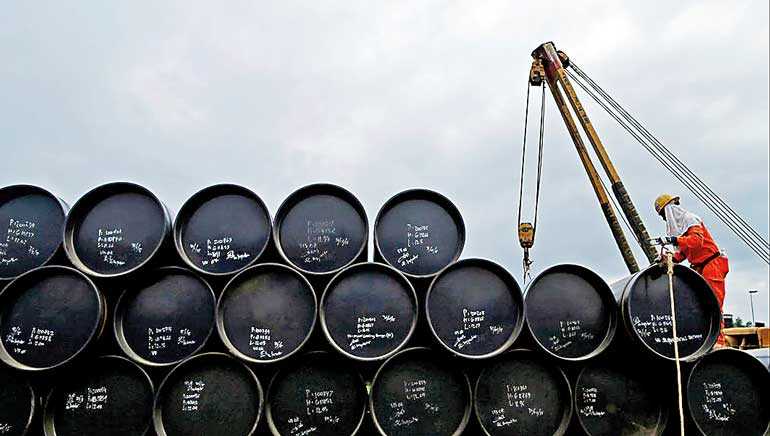Monday Feb 23, 2026
Monday Feb 23, 2026
Wednesday, 15 May 2019 00:59 - - {{hitsCtrl.values.hits}}

SINGAPORE (Reuters): Prices of Middle East and Russian spot crude grades sold in Asia hit multi-year highs as Asian oil buyers snapped up cargoes amid tighter supplies, trade sources said on Tuesday.
US sanctions on Iran and Venezuela, disruptions of Russian oil flows in Europe and maintenance at oilfields in the Atlantic Basin and Asia have tightened global supplies and boosted Asia’s demand for spot cargoes, they said.
Japan’s Fuji Oil bought a July-loading Murban crude cargo at a premium just under $ 1 a barrel to its official selling price (OSP), the highest premium for the grade since 2015.
Last week, Royal Dutch Shell paid a premium of $ 6 a barrel to benchmark Dubai quotes for Russia’s Sokol crude for July loading, the highest premium since 2014.
For medium sour grades, the premium for July-loading Oman crude futures to Dubai hit a high of $ 3.46 a barrel on Monday, the most for this time of year in four years, while Qatar Marine crude was sold out at 70-80 cents above its OSP, the highest spot premiums since 2013.
The surging premiums are a result of the confluence of several factors limiting global supply. Oman and Qatar Marine prices jumped as the US stopped granting waivers to Iranian sanctions that have curtailed exports of the so-called heavy crudes that it produces. Asian buyers were already competing with US refiners for the same pool of resources after the United States imposed sanctions on supplies from Venezuela, forcing buyers to turn to the Middle East, Africa and Latin America for replacements.
Asia’s demand for Russian and Middle Eastern light grades such as Sokol and Murban strengthened after arbitrage supplies from the Atlantic Basin and the United States fell.
Rising domestic demand from refiners has pushed premiums for US crude higher curbing exports.
The contamination of Russian Urals crude on pipelines into Europe and the longer-than-expected closure of the North Sea’s Oseberg field have caused benchmark Brent’s premium to Dubai to surge above $ 3 a barrel, making Atlantic Basin oil more expensive for Asian buyers. Angolan crudes were already selling at all-time high premiums as exports have dropped due to field maintenance while some Nigerian production were under force majeure. In Asia, Malaysia’s Kimanis crude exports will also fall sharply in July because of field maintenance.
Refiners are expecting to make up the supply shortfall from Saudi Arabia, though the country is likely to keep its exports below 7 million barrels per day to avoid a price crash like the one at the end of 2018.
Rising prices have pushed up costs for Asian buyers and could weigh on regional refining margins that are at their lowest in five years for this time of year.
“With a tight supply side picture, Saudi Arabia is unlikely to repeat its mistakes from 2018 and with new refineries in the region ramping up, Asian refiners will need to pay up for barrels,” said Virendra Chauhan, a Singapore-based oil analyst at consultancy Energy Aspects.